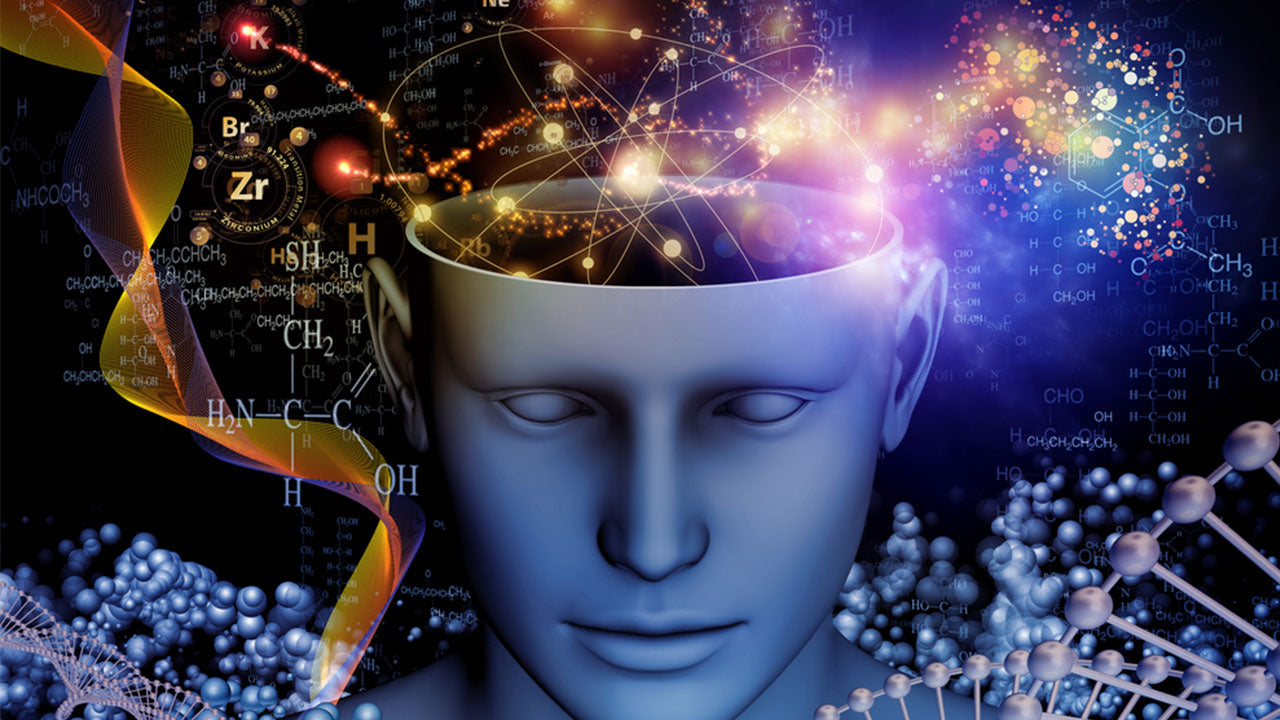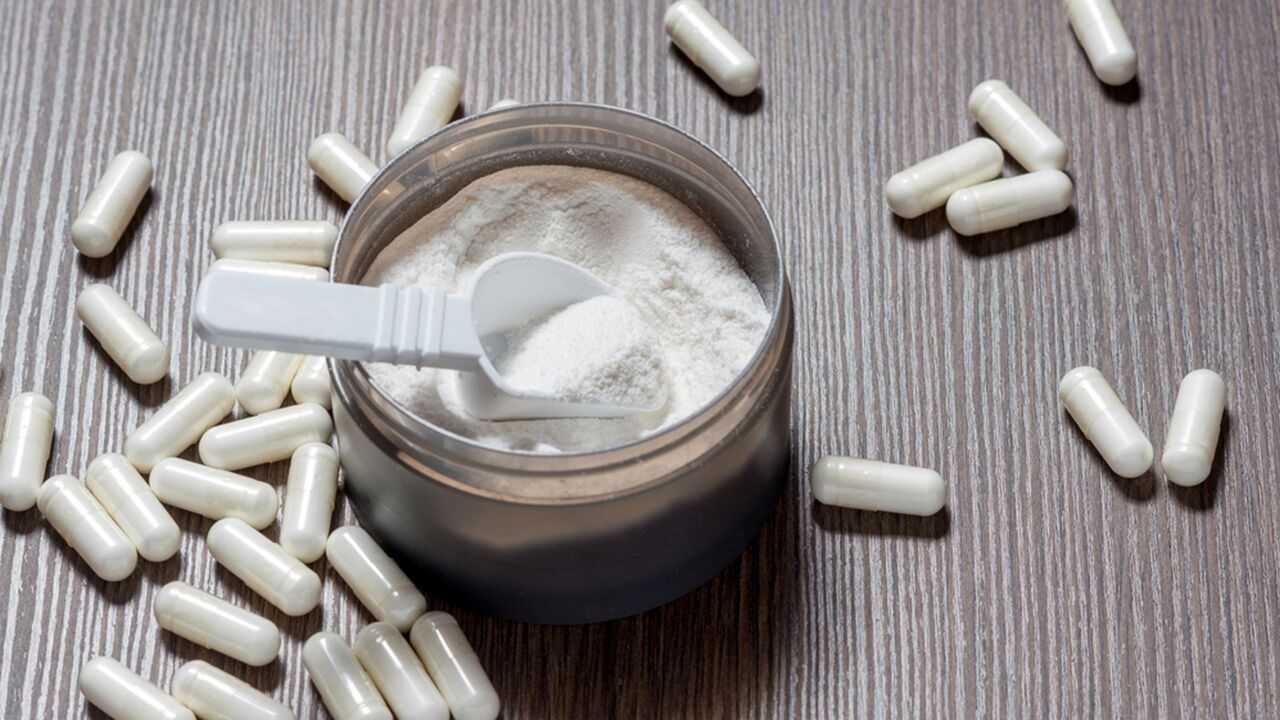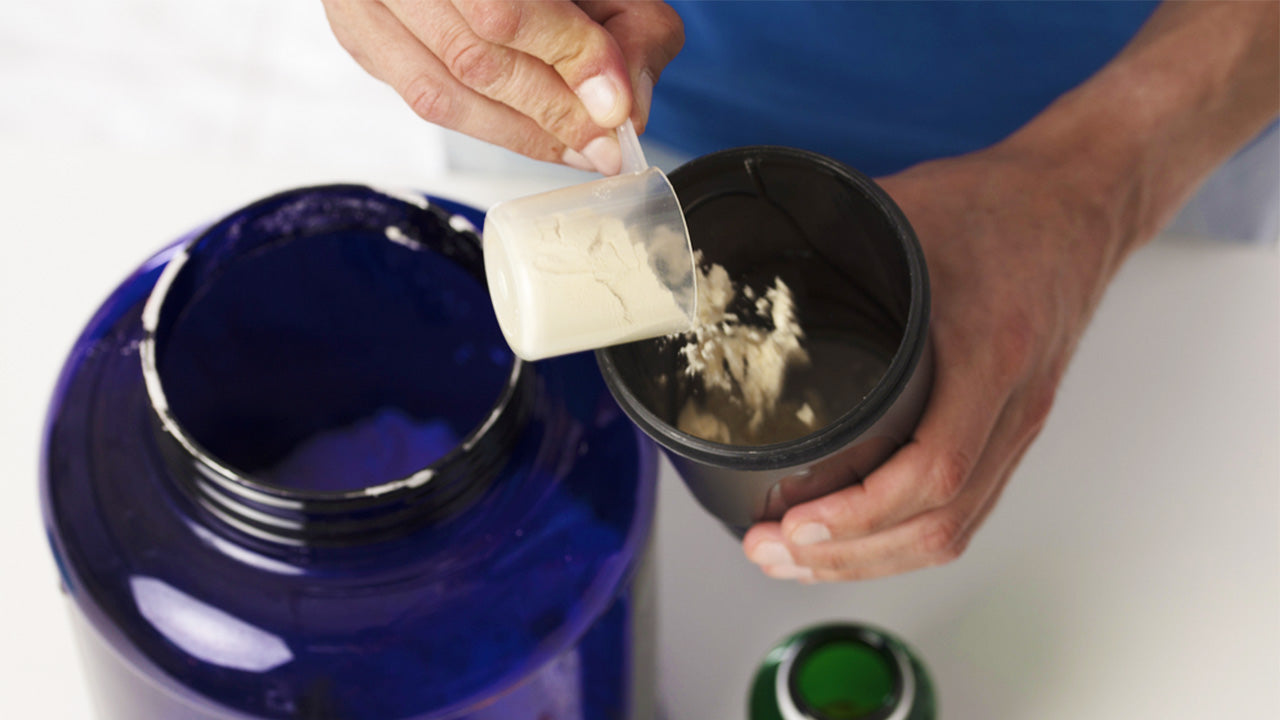Amino Acids for Brain Repair and Cognitive Function
 By: by Amino Science
By: by Amino Science

The neurotransmitters in our brains are responsible for our energy levels, our memories, our moods, our learning abilities, and more. If these neurotransmitters are out of balance, our brains can't function and our well-being is compromised. A disorder of serotonin levels can lead to anxiety and depression, an insufficiency of dopamine can lead to feelings of sloth and anger, and without GABA to help calm us down, we're susceptible to panic attacks and stress. Amino acids both act as neurotransmitters and help stabilize levels of neurotransmitters, making them a key nutritional therapy for brain and mental health. Researchers are also applying amino acid therapy to traumatic brain injury. Truly, amino acids play a crucial role in our brain functions and more, and this article details how dietary amino acids for brain repair can help balance our minds.
How Brain Chemistry Works
Our brain cells communicate through a web of synapses. Each nerve cell has pre- and post-synaptic receivers that can communicate with the other cells using chemical signal molecules. Those molecules are our neurotransmitters. Neurotransmitters travel through the tiny gaps between cells like untethered astronauts floating from ship to ship in space.
When enough neurotransmitters attach to one cell, that cell relays the signal to the next cell, creating a chain reaction of communication. Once the neurotransmitters have delivered their message, other enzymes come in to clean them up so the nerve cell isn't permanently activated. The neurotransmitters are either destroyed or reabsorbed, which is known as reuptake.
Balance is key to avoid brain and mood disorders. For example, SSRIs are serotonin reuptake inhibitors designed to interfere with excessive serotonin uptake, increasing its signal strength so that happiness is felt more acutely and depression is subdued.
Any impairment in this process, whether due to imbalance or injury, can interrupt the entire nervous system. Amino acids play a vital role in the neurotransmitter dance. Let's find out how.

Amino Acids for Brain Repair
Amino acids are the building blocks of protein in the body, making them crucial for creating and repairing muscle fiber. But they also work to synthesize the hormones we need for communication throughout the body, and they are the precursors to our most important neurotransmitters.
The aromatic amino acids tyrosine, tryptophan, and phenylalanine are the precursors for the neurotransmitters dopamine, serotonin, and norepinephrine (a hormone that functions as a neurotransmitter and works to regulate blood pressure). The branched-chain amino acids leucine, isoleucine, and valine have data indicating that they can help rebuild the brain after traumatic injury. Here's how each of these amino acids helps to support cognitive function and brain activity.
The Aromatic Amino Acids and GABA
Tyrosine, tryptophan, phenylalanine, and GABA are crucial amino acids that may just help enhance neurochemical repairs and cognitive performance. Without the proper balance of aromatic amino acids, you may experience too low or too high levels of the following neurotransmitters.
1. Dopamine
Low levels of dopamine are associated with Parkinson's disease, a progressive neurodegenerative disorder that interrupts balance, movement, muscle control, and other important bodily functions. Too high levels of dopamine have been linked to schizophrenia.
Disruption of your dopamine levels can manifest as a lack of motivation, unexplained feelings of dread or hopelessness, isolating behavior, and apathy towards family and friends. Without the proper balance of amino acids, your dopamine levels may be out of order.
2. Serotonin
Known as the "happy hormone," serotonin is closely linked to mood and emotion, and insufficient levels can be behind feelings of social anxiety and depression. Serotonin helps shape our perceptions of reality, so much so that most psychedelic drugs that alter those perceptions operate on serotonin pathways in the brain.
Without enough serotonin, people feel unhappy, restless, and can no longer enjoy things they once did. These feelings can be life-threatening, especially in teenagers, young adults, and those going through major life changes.
3. Norepinephrine
Low levels of norepinephrine are linked to depression, ADHD, and low blood pressure. In health care instances, norepinephrine is sometimes prescribed specifically to help treat low blood pressure, but as both a stress hormone and neurotransmitter, norepinephrine plays a large role in cognitive function.
4. GABA
Gamma-amino butyric acid, abbreviated GABA, operates as a balance against norepinephrine, calming the nervous system when it's time to rest or sleep. Without sufficient GABA, people experience panic disorders and symptoms like rapid heartbeat, shortness of breath, sweating, shaking, restless thoughts, and excessive worry.
Human studies show GABA treatment can help regulate anxiety, bringing balance back to an imbalanced brain. GABA can be consumed as a supplement and also synthesized within the body from the branched-chain amino acids.
The Branched-Chain Amino Acids (BCAAs)
The balance of chemicals in an otherwise healthy brain is important enough, but our nine essential amino acids (of which the branched-chain amino acids are three) can also bring beneficial effects in instances of traumatic brain injury (TBI) and cognitive impairment.
Penn Medicine News states, "Neurology researchers have shown that feeding amino acids to brain-injured animals restores their cognitive abilities and may set the stage for the first effective treatment for cognitive impairments suffered by people with traumatic brain injuries."
What is beginning as clinical trials based on animal models of brain injury may some day help human patients with brain damage from TBIs restore their quality of life just by ingesting the BCAAs leucine, isoleucine, and valine.
Many athletes and bodybuilders take BCAAs as part of their supplement regimen for protein synthesis and muscle building, but for those athletes who perform sports that involve potential head injuries, these branched-chain amino acids may come to be so much more valuable in the area of brain repair.
How to Avoid Brain Imbalance
You can't predict or prevent a brain injury (outside of wearing a helmet when it's appropriate), but you can help prevent chemical imbalances by taking care of your gut.
The essential amino acids are so-called because we must consume them from outside sources like our food or targeted amino acid supplements. By eating amino acid foods like meat and plant protein sources, we gain the amino acids we need, and not only do we absorb our aminos in the gut, but we also synthesize our neurotransmitters there too. Up to 90% of serotonin is made in the gut, so if your gut health is poor, your gut microbes imbalanced, or you have a malabsorption disorder like Crohn's disease, you may be experiencing disturbances to your brain health.
Other than maintaining digestive health, ensuring that you consume a proper balance of all nine essential amino acids is imperative. In fact, amino acids are so important to so many functions in the body that the experts here at AminoCo have designed scientifically balanced amino acid formulas targeted to help build muscle and enhance liver health, brain health, and more. You can learn more about these brain- and body-boosting formulas here.
Amino Acids: Food for Thought
Amino acid neurotransmitters for proper brain functioning are essential, and new research shows that they may even help restore function after a traumatic brain injury. Stay tuned as science reveals more and more amazing applications for amino acids every day, for brain health and beyond.

Up to 25% off Amino
Shop NowTAGS: benefits
Join the Community
Comments (0)
Most Craveable Recipes




 833-264-6620
833-264-6620



















